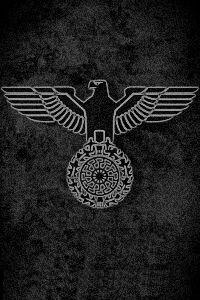
Genre: National Socialism
Language: English
Year: 1924
Pages: 21
Format: PDF
Size: 504 KB
Der Bolschewismus is of interest to Americans today for three reasons:
First, it is the last earthly work of the man who, as the intimate companion of Adolf Hitler during those critical, early years in Munich, helped prepare the spiritual foundations of National Socialism. Eckart had been seriously ill as he was writing the pamphlet, and his arrest and temporary imprisonment, as a consequence of the Munich putsch of November 9, 1923, were followed shortly by his death.
Second, it is instructive, as being representative of a certain category of propaganda. Eckart was a practical propagandist as well as an idealist and a poet, and Der Bolschewismus is an
excellent example of his style. Aimed at the reader with the equivalent of a high-school education, it is skillfully contrived to avoid tediousness and maintain a relatively unsophisticated audience's interest while making a rather extensive, if not intensive, historical investigation of the Jewish question. It achieves this by relegating the great majority of documentary evidence to footnotes and by liberally interspersing historically significant points with spicy or amusing tidbits.
Third, it is of considerable interest, even today, for its own sake. Although the last forty years have unfortunately provided us with considerably more experience of Jewish-Bolshevist activities, Eckart did quite well with the materials available to him in 1923. Of particular interest is his use of the Old Testament, as a history of the Jews, to throw light onto more recent Jewish activities.